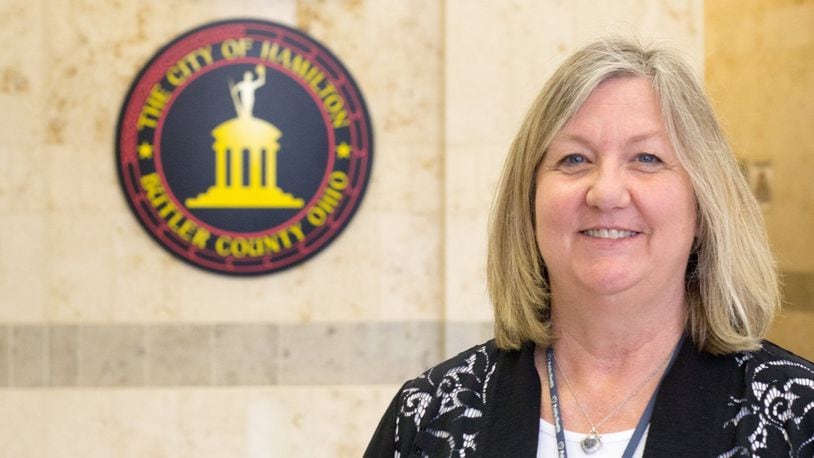For many years, Farrar and other local health officials like her in Ohio’s 88 counties and across the country have quietly been preparing for a large disease onslaught like the one posed by the coronavirus, COVID-19, which has been changing everyone’s lives, from closing schools and many businesses to forcing many to work from home.
As part of a usually invisible health safety net, Farrar was among the first locally to track progress of the disease, watching daily the growing numbers in China, South Korea and this country.
Farrar also witnessed in person on March 5 the commitment that Gov. Mike DeWine and Dr. Amy Acton, director of the Ohio Department of Health, were pouring into what was then a looming battle on the horizon against the pandemic.
DeWine called together all the state’s health commissioners to meet that day with him and his cabinet a block from the Statehouse. They had a teleconference with the U.S. Surgeon General so everyone understood the magnitude of the situation.
“I’ve been around public health for 22 years, and I’ve never seen a governor be present with his entire cabinet, and the governor stayed at our summit from 8 in the morning to about 1 in the afternoon,” Farrar said. “He made that his priority. He told one and all, ‘This is my priority today.’ They were all there, and they were all supportive.”
“Dr. Acton has put the highest controls in place, which I hundred-percent agree with,” Farrar said at the time.
Since then, DeWine and Acton have received praise nationally for their handling of the crisis.
On March 11, Farrar gave a presentation to Hamilton City Council about the dangers of coronavirus, explaining what she and others were doing.
The main danger of the virus, she said, was it had never before been seen until December, so there was no vaccine or anti-viral treatment that can alleviate symptoms, like Tamiflu does for the flu. Scientists still are exploring how it can spread, and aren’t sure whether someone who has had coronavirus can get it again.
Farrar has a bachelor of science in nursing and is a registered nurse.
The county’s three health districts — the Butler County Health Department, Middletown Health Department, and Hamilton’s health department — were working “in unified command,” Farrar said.
“We want to stay on the same page so that everybody’s getting the same message, so that one nursing home doesn’t say, ‘How come this is happening here but not here?’” she said.
Before the disease had reached this region, the three departments convened nursing-home officials to suggest ways to prevent its spread.
She had worked with Sheriff Richard Jones and decided to close the county jail and juvenile detention to visitors, largely because groups waiting in the lobby waiting to visit prisoners would spread germs.
In battling such diseases, the main goal is to prevent many people from becoming ill all at once, and overwhelming area hospitals’ ability to care for them all, Farrar said.
“Does that mean we may decrease the number of people affected? Maybe not,” she said. “But at least we spread it out over a longer period of time, where we can handle it, where it’s easier for us to look at the numbers and be able to say, ‘Yeah, Fort (Hamilton Hospital)’s got that many beds, we don’t have to go into Plan B.”
If many people are sick at once, “We have Plan B set up. Public health is very deep,” she said. “We’re ready to go as we need to go. But we’d rather do the flattened curve (of fewer sick people at once) where we have the capacity to take care of everyone properly without having to commandeer a hotel and having to turn it into a hospital, etc.”
Farrar said Hamilton has not been hurt in this battle by the loss of one public-health nurse. The city in late 2018 cut two full-time positions for budget reasons, but later had to hire one to meet state requirements.
Although the city nurses that year had vaccinated more than 900 Butler County jail inmates to limit the spread of hepatitis A, in this case, there is no vaccine, and may not be one for a year or more.
When one arrives, even with three city nurses, “there’s no way we could vaccinate 64,000 people by ourselves.”
A large group of medical reserve corps nurses is available to help with that.
“We would draw from the community as we’ve always had to, and get what needs to be there for the citizens, because that’s what it’s all about,” Farrar said. “We in public health would never be able to have enough nurses to cover a flooding like that, so we would always need to have partners.”
This period of social separation is uncomfortable, but it’s for the greater good, especially to save people over 60, those with underlying health conditions such as diabetes, heart disease and lung disease, Farrar said.
Young people are not immune to serious illness or death from it.
READ MORE: Warren County megachurch holds services Sunday, faces backlash
About the Author
